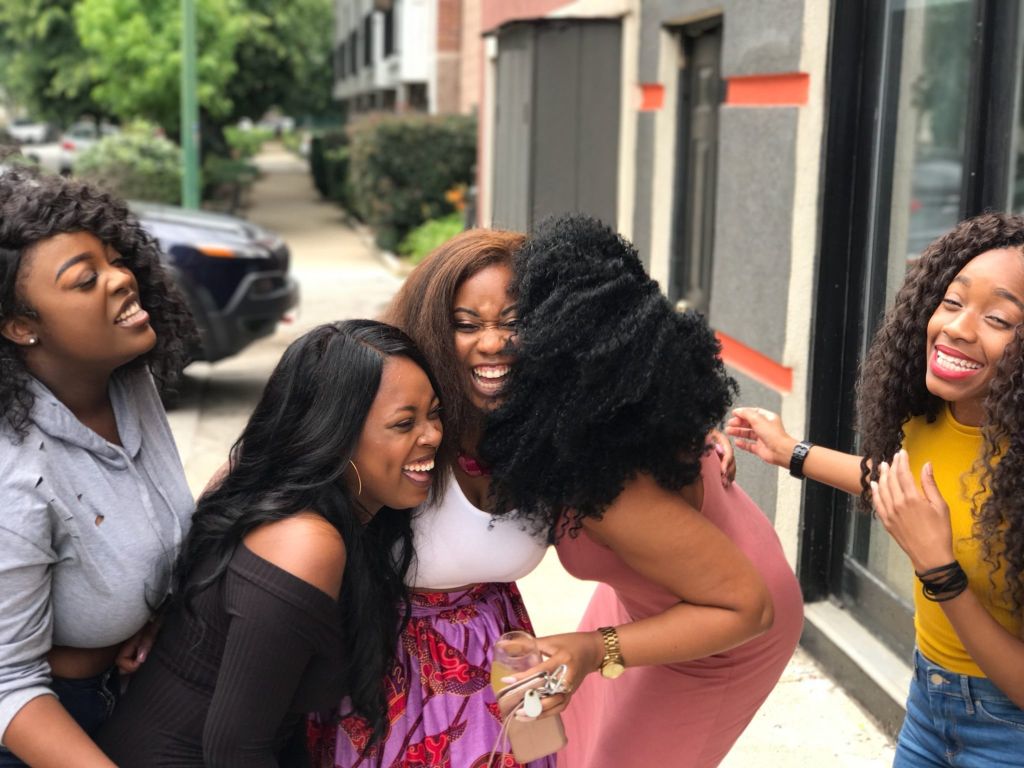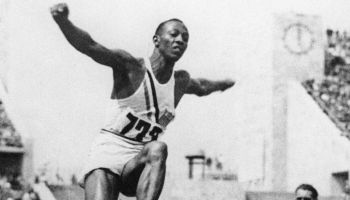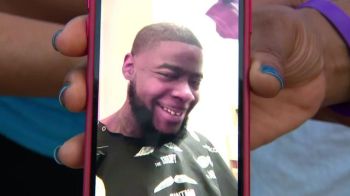
Source: Pexels / Pexels
Much has been said on the subject of single Black women, our marriageability rates and the abysmal dating pool available to us. You might even say too much has been said about all this, but I have yet to hear the perspective of one who is perpetually single like myself. There is no shortage of people within and outside our community telling us that our standards are too high, and how we need to be “high-value women” or settle for whoever shows us a modicum of attention.
As if that weren’t enough, it seems like mainstream media can’t get enough of this subject, either. In the early 2000s, there was a flood of exposés on all the major U.S. news outlets about the “Single Black Female,” which often focused on the question, “Why can’t successful Black women find a man?” Much of the reporting devolved into paternalistic advice, false assertions about Black pathology, and overworn stereotypes about “the strong Black independent woman.” Not unlike a frog cut open during a middle school science experiment, Black women were prodded, poked, sliced, and examined like specimens as our interior lives were dissected under the microscope of America’s paternalism.
MORE: Misogynistic ‘Guru’ Kevin Samuels Says Women Who Are 35 And Unmarried Are ‘Leftover’
The preponderance of such reporting, seemingly intractable statistics which reveal that 62% of Black women– like myself–are more likely to be unpartnered, and the convergence of my experience as a lifelong single Black woman who desires to be married to a Black man has stirred up within me a “righteous discontent,” to borrow the prescient phrase from Nannie Helen Burroughs. I posit that Black women who desire to be married yet find themselves single are not more broken than anyone else on the dating market. And I categorically reject the idea that our single status is due to some pathological phenomenon within the Black community, as some researchers, journalists, and pundits have suggested. Rather, Black women are ensnared by interlocking social structures that render them single for far longer than they intend, with fewer intraracial dating options.
I share my story of singleness merely as a vignette of what it’s like to be a Black woman ensnared by structural mechanisms of mass incarceration, colorism, and desirability mapped onto me and other Black women whose dating experiences track with Black heteronormative dating patterns. This is my story, this is my song: I am a thirty-something single Black woman, and I have never been in a dating relationship. I’ve never had a boyfriend. I’ve never brought anyone home to meet my family. I’ve never even been pursued or sought after. In my early twenties, people thought my singleness was endearing. In my late twenties, endearment gave way to bewilderment and morphed into mystification. And in my mid-thirties, mystification produced shame. In my late thirties, shame has transformed into anger.
Honestly, I’m not sure how it happened. My perpetual state of singleness is an enigma. It is not for lack of trying; I’m certainly not a hermit. I travel, work out, take in festivals, enjoy concerts, and attend academic lectures to satisfy my intellectual curiosity. I participated in the early iteration of online dating back when the general consensus was that online dating was weird. I was on eHarmony, match.com, Blackpeoplemeet.com and Black Planet. When dating apps became the norm, I moved with the times and downloaded a few of those apps on my phone, where they remain as I write this, because I’m still single. Now is as good a time as any to say that dating apps are a special kind of hell all their own, and I would not wish them on my worst enemy.
Despite online dating, dating apps, and my friends’ well-intentioned matchmaking attempts, these efforts have only ever resulted in “situationships.” Surely you know what situationships are—and if you don’t, perhaps you’ve unwittingly experienced one. Situationships are those faux relationships that revolve on an axis of grey, refusing to be black or white, constrained by an unspoken mutual attraction and enmeshed with all the anxiety and heartbreak that comes with a relationship. Yet after enduring situationships in the typical four-to-six-month installments—and in some cases, even a year— heartbreak and sorrow, even without the “girlfriend” title, were the only evidence that something had transpired each time.
When I read Dianne M. Stewart’s “Black Women, Black Love: America’s War on African American Marriage,” I felt seen in her descriptions of the systemic forces working against us. Stewart lays out the issue masterfully when she says, “Most heterosexual Black women in America today, whether parenting offspring or not, are single by circumstance, not by choice.” Stewart continues, “The trouble is not with Black women failing to value marriage; it is the shrinking demographic of those whom Black women want to marry . . . In some cases, Black women lack dating prospects within their socioeconomic group, and in other cases, they don’t have any dating prospects at all!”
She characterizes Black women’s lack of opportunities for love and marriage with Black men as “the nation’s most hidden and thus neglected civil rights issue to date.” Stewart provides the historical receipts that reveal Black love as a contested site in this nation and details the way that the “war on African American marriage” was waged in the past and present.
Undoubtedly, there are structural realities that have contributed to my singleness, like mass incarceration. “There are approximately 100 unimprisoned Black women to 91 unimprisoned Black men,” according to Stewart. In 2015, Ta-Nehisi Coates shared a litany of harrowing statistics in The Atlantic (“The Black Family in the Age of Mass Incarceration”): “In 2000, one in 10 black males between the ages of 20 and 40 was incarcerated—10 times the rate of their white peers. In 2010, a third of all black male high-school dropouts between the ages of 20 and 39 were imprisoned, compared with only 13 percent of their white peers.” Coates adds, “One in four black men born since the late 1970s has spent time in prison.” In other words, in the year 2000, as I was entering college—one of the most viable ways to meet a suitable marriage partner—my Black male peers were entering cages all over this nation.
Additionally, colorism is an intraracial dynamic that has played a role in my singleness. Researchers have found that dark-skinned Black women like me are less likely to be married than our light-skinned counterparts. Dark-skinned Black women are also disproportionately impacted by the depletion of the Black male marriage pool. This point is underscored by Darrick Hamilton, Arthur H. Goldsmith and William Darity, Jr. in “Shedding ‘Light’ on Marriage: The Influence of Skin Shade on Marriage for Black Females.” They found that 55 percent of light-skinned Black women had been married, compared with only 23 percent of their dark-skinned counterparts.
Inevitably, the issue of desirability is raised whenever the subject of singleness is on the table. But let me state for the record that desirability is a scam. Beauty or lack thereof does not determine if an individual will or won’t be married. I think we know this intuitively, but due to our socialization, we continue to deceive ourselves into thinking that if we enhance, lighten, tighten, lift, plump, then we will be desirable and partnered.
I’m what people would classify as desirable. However, this was not always so. The world around me taught me that beauty did not belong to me. I wish I could tell you that I did not internalize the messages of undesirability during my adolescence, but that’s simply not true. Especially as a dark-skinned Black girl turned Black woman who was born and raised in California. Beauty standards are not transnational, which is why my sweet mother would often remind me that my gap-toothed smile is a symbol of beauty back in her home country of Nigeria. But in my home country, the United States of America, it is not.
As human beings, we gravitate toward beauty; we create beautiful things in the world. And that’s a good thing. However, the way we commodify, compare and manipulate beauty? The way we contort and control beauty, creating structures of beauty that idolize some and malign others? A scam. Desirability is no match for the structural realities Black women contend with on a daily basis. Desirability’s arms are too short to box with the enduring legacy of chattel slavery, colorism, mass incarceration, and beauty hierarchies.
The far-reaching tentacles of oppression via the transatlantic slave trade, chattel slavery, and mass incarceration have depleted the Black male marriage market. Meanwhile, what’s left of the market is further complicated by colorism and beauty hierarchies, leaving heterosexual Black women who desire to be married to a Black man, single for far longer than they intend. It is one thing for a Black woman to choose singleness—which is their prerogative; not everyone desires marriage. It is another thing entirely to desire marriage and to have your agency with regard to your marital status stripped away from you due to mechanisms of oppression that have been in motion for hundreds of years. Part of what it means to be fully human is to exercise our God-given agency. When this is stripped from us, injustice is afoot– and righteous discontent is a reasonable response.
Adapted from the chapter “Hidden in Plain Sight” by Ekemini Uwan from Truth’s Table. Copyright © 2022 by Ekemini Uwan, Christina Edmondson and Michelle Higgins. All rights reserved. No part of this piece may be reproduced or reprinted without permission in writing from the publisher.
Reconciling Kevin Samuels’ Divisive Views With How Black Women Are Reacting To His Death
We All Know Why Kevin Samuels’ Death Is Making Black Women Feel A Way
















